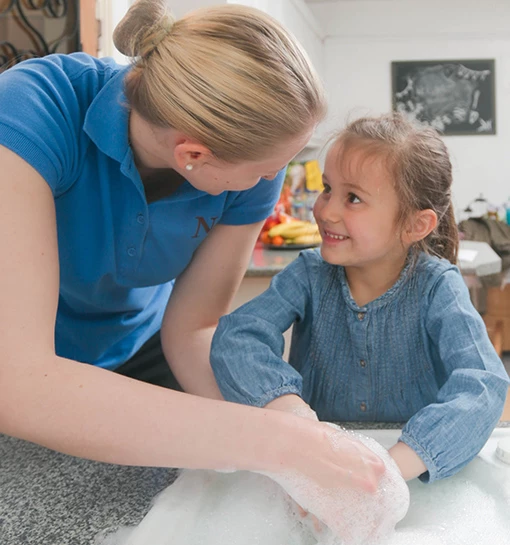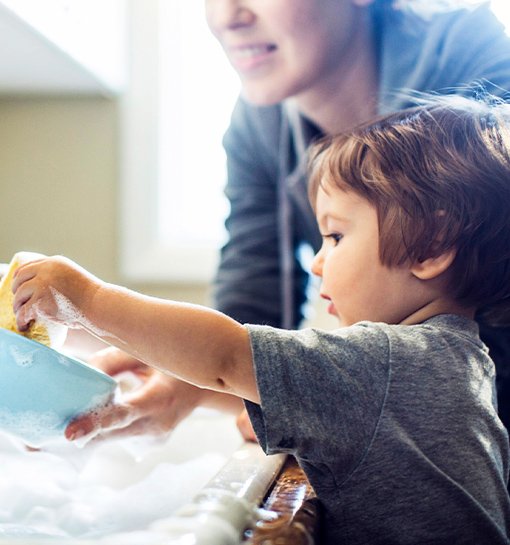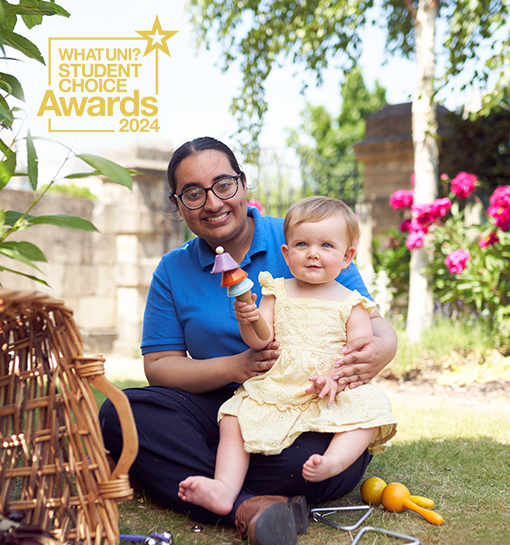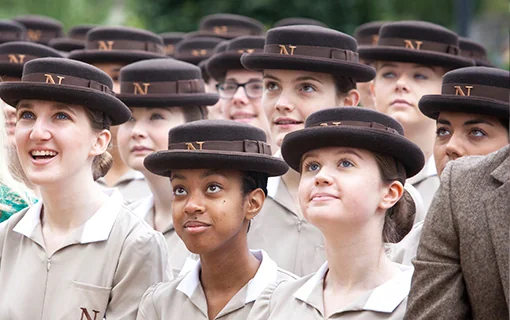Talking to children about coronavirus
30 March 2020

One of the knock-on effects of the coronavirus crisis is increased pressure on families with young children. Dr Janet Rose, Principal, and Julia Gaskell, Head of Consultancy and Training, have put together some top tips to help parents and adults when they are talking to children about coronavirus.
As parents and adults, it is important that we remember our children will be watching and learning from us during this crisis, as they do at any other time. They will be learning and developing their skills on how to respond to stress and uncertainty. It is crucial, therefore, that we use this as an opportunity to help them to be resilient (rather than panic) and to spread kindness (rather than selfishness).

“Highlight the positive aspects which will also help them feel safer. Explore all the ways people are helping others and the great job doctors and nurses and other professionals are doing to protect us and make sure we’re safe. You can draw or make a list of all the helpers and think about how you can help others with your child, such as taking them to deliver food to an elderly neighbour. Explain that their nursery or school is closing to protect them and clarify why some children are still going, i.e. to help people help other people.”
- Some top tips:
Find out what your child already knows. Ask open questions that are appropriate to your child’s age level. This gives you a chance to learn how much your child knows — and to find out if they’re hearing the wrong information or have been told something that’s inaccurate. It also helps to address specific concerns they may have. Children take things very literally so it’s critical to check for understanding. For example, “Do you know why it’s important that we stay at home?”. Use clear and brief information but don’t overload them with too many facts. - Be sensitive to your child’s response and attune to their needs. If they want to talk, listen, but if they do not want to talk, respect that. You can always revisit another time. Listen to their fears without judgement and reassure them that they can talk about their feelings at any time. Children will often worry more about other people than themselves, for example, the parents or grandparents. Letting them call or video-call may help alleviate concerns.
- Be open and honest. Children will worry more if they feel that things are being kept a secret from them. Help your child feel safe but tell the truth. Only give as much detail as is needed or your child is interested in and focus on what everyone is doing to stay safe. For example, be positive about all the steps we can take to wash our hands. Watch closely to ensure their anxieties appear to be relieved.
- It’s OK not to know the answers to their questions. You could find out the answer together. Make sure that you visit reputable websites so that they do not see scary headlines or pictures.
- It’s important to remain calm and be reassuring. Children will pick up on your body language and anxiety. So, self-regulate first! Acknowledge that it is OK and normal to feel stressed. Validate and empathise with their feelings but also give them clear and reassuring facts. Be careful about what you say in front of children, even if they look as though they are not listening! This will help them to feel safe emotionally.
- These are very uncertain times for all of us and therefore a good strategy is to help children feel in control where you can. Feeling unsafe, whether emotionally or physically, generates the most stress. So empower them in different ways to feel more in control by teaching them how to wash their hands properly and talking about all the strategies in place to help keep us all safe and healthy. Be a germ destroyer with them and let them help you disinfect the home; play superheroes with them zapping or freezing the virus (unless this makes them more anxious). Keep to routines and rituals where possible. Structure helps the brain to feel safer. This may mean creating a new routine that combines old rituals with new ones.
- Be aware of how children are accessing information and news. This is especially relevant to older children who are active online. Be aware of news stories and put these into context where necessary. Avoid watching or listening to the news with your children. News programmes are intended for adults, and children may feel distraught by the information or images being shown and you cannot control the information that they will see or hear.








